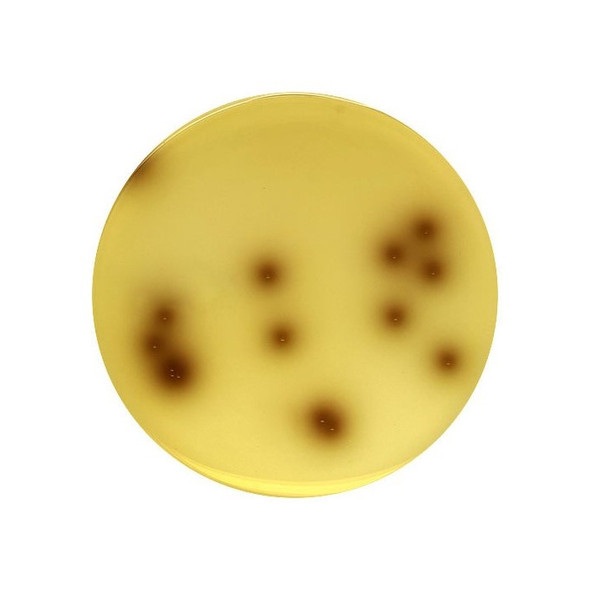Description
Bile Esculin Azide Agar: Selective Isolation for Faecal Streptococci
Bile Esculin Azide Agar is a high-performance selective and differential medium recommended for the isolation and presumptive identification of faecal Streptococci (also known as enterococci).
This medium's composition and performance strictly adhere to the specifications outlined in ISO 7899-1:1984, ensuring reliability in microbiological testing, particularly in water and food quality assessment.
Key Features and Mechanism
-
Selective Action: The medium utilizes bile and sodium azide as inhibitory agents. These components effectively suppress the growth of most other accompanying bacteria, providing a selective environment that favors the proliferation of faecal Streptococci.
-
Differential Identification: The differential action is based on the hydrolysis of esculin. Faecal Streptococci possess the enzyme to hydrolyze esculin, which then reacts with iron ions in the medium (not explicitly listed but necessary for the reaction). This reaction yields esculetin, which forms a distinct dark brown or black complex that precipitates as a zone of black color around the colonies. This easily observed reaction allows for the presumptive identification of positive organisms.
Product Details
Applications and References
Bile Esculin Azide Agar is a crucial tool cited in numerous standard procedures and texts for clinical, food, and environmental microbiology. Key references supporting its use include the Manual of Clinical Microbiology (ASM), Standard Methods for the Examination of Dairy Products (APHA), and Standard Methods for the Examination of Water and Wastewater (APHA).








